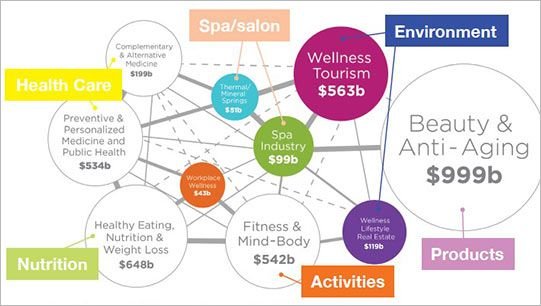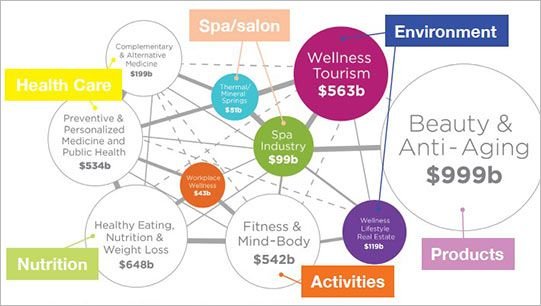Health is an essential aspect of human well-being. It influences our daily activities, longevity, and overall quality of life. Maintaining health requires a holistic approach that includes human health, mental wellness, preventive healthcare, and nutritional balance.

Understanding Human Health
Human health is a broad concept that encompasses physical, mental, and social well-being. It is influenced by genetics, lifestyle choices, and environmental factors. According to the World Health Organization (WHO), health is more than just the absence of illness or disability; it is a condition of whole physical, mental, and social well-being.
Importance of Physical Health
Physical health is crucial for a productive life. It involves maintaining an active lifestyle, getting adequate rest, and consuming a balanced diet. Here are some essential factors contributing to physical health:
Exercise: Regular physical activity strengthens muscles, boosts cardiovascular health, and enhances endurance.
Balanced Diet: Consuming nutrient-rich foods promotes nutritional balance and prevents chronic diseases.
Hydration: Drinking enough water ensures optimal bodily functions and enhances energy levels.
Sleep: Quality sleep supports cognitive function and emotional well-being.
Mental Wellness- A Vital Component of Health
Importance of Mental Wellness
Mental wellness plays a critical role in overall human health. It affects emotions, thoughts, and behaviors. Mental wellness includes stress management, emotional resilience, and maintaining positive relationships.
Strategies to Improve Mental Wellness
Mindfulness Practices: Techniques such as meditation, deep breathing, and yoga improve focus and reduce stress.
Social Connections: Maintaining healthy relationships enhances emotional well-being and provides support during challenges.
Professional Help: Seeking therapy or counseling can aid in coping with mental health concerns.
Physical Activity: Exercise has been shown to boost mood and reduce symptoms of anxiety and depression.
Preventive Healthcare- The Key to Long-Term Well-Being
What is Preventive Healthcare?
The term “preventive healthcare” describes actions done to avoid illnesses rather than cure them. It includes vaccinations, regular health check-ups, and adopting a healthy lifestyle.
Benefits of Preventive Healthcare
Early Disease Detection: Regular screenings help in identifying conditions before they become severe.
Cost Savings: Preventing diseases reduces healthcare expenses and medical treatments.
Improved Quality of Life: A proactive approach to health ensures longevity and enhances well-being.
Essential Preventive Healthcare Measures
Routine Check-ups: Regular medical visits help monitor health conditions.
Healthy Diet: Consuming a variety of nutrients ensures nutritional balance.
Exercise: Staying active reduces the risk of chronic diseases.
Avoiding Harmful Habits: Reducing alcohol intake and quitting smoking contribute to better health.
Immunization: Vaccinations protect against infectious diseases.
Nutritional Balance- The Foundation of a Healthy Life
What is Nutritional Balance?
Nutritional balance refers to consuming the right proportions of macronutrients and micronutrients. A well-balanced diet ensures that the body gets essential vitamins and minerals for optimal functioning.
Benefits of Nutritional Balance
Boosts Immunity: A nutrient-rich diet strengthens the immune system.
Enhances Energy Levels: Proper nutrition improves stamina and reduces fatigue.
Supports Mental Wellness: Nutrients like Omega-3 fatty acids enhance brain function.
Prevents Chronic Diseases: A balanced diet reduces the risk of obesity, diabetes, and heart disease.
Tips for Achieving Nutritional Balance
Include a Variety of Foods: Consuming different food groups ensures nutrient diversity.
Portion Control: Eating in moderation prevents overeating and maintains a healthy weight.
Hydration: Drinking enough water aids digestion and cellular functions.
Reduce Processed Foods: Limiting sugar and trans fats helps in maintaining a healthy body.
Meal Planning: Preparing meals in advance ensures a consistent intake of healthy foods.
Mental Wellness and Nutritional Balance
A well-balanced diet is essential for mental wellness. Nutrients such as Vitamin B12, iron, and Omega-3 fatty acids contribute to brain health and mood regulation.
The Role of Lifestyle in Maintaining Overall Health
How Lifestyle Affects Health
A healthy lifestyle promotes human health, ensuring both physical and mental well-being. Key aspects include:
Regular Exercise: Engaging in physical activity enhances cardiovascular health and muscle strength.
Balanced Diet: Achieving nutritional balance supports immunity and overall vitality.
Stress Management: Managing stress effectively improves mental wellness.
Preventive Healthcare Practices: Regular check-ups and vaccinations prevent illnesses.
Practical Steps to Improve Lifestyle
Develop a Routine: A structured schedule promotes productivity and balance.
Limit Screen Time: Reducing excessive use of digital devices improves focus and sleep quality.
Prioritize Sleep: Getting 7-9 hours of rest rejuvenates the body and mind.
Engage in Physical Activities: Incorporating activities like walking, yoga, or cycling enhances mental wellness.
Common Myths About Health and Wellness
Meal Skipping Aids in Weight Loss
Later overeating can result from a slowed metabolism caused by missing meals.A balanced diet is crucial for maintaining nutritional balance.
Mental Health Issues Are Rare
Mental wellness is essential for everyone. Anxiety, depression, and stress are common and should be addressed promptly.
Preventive Healthcare is Only for Older Adults
Preventive measures are vital for all age groups. Early detection and healthy habits contribute to long-term human health.
5 Most Trending FAQs About Health
How can I maintain a healthy lifestyle?
Maintaining health involves regular exercise, a balanced diet, sufficient sleep, and stress management.
What are the best foods for nutritional balance?
Leafy greens, lean proteins, whole grains, nuts, and fruits contribute to nutritional balance.
How does mental wellness affect physical health?
Good mental wellness reduces stress, enhances immunity, and prevents chronic conditions.
Why is preventive healthcare important?
Preventive healthcare detects diseases early, reduces healthcare costs, and enhances quality of life.
What are the key factors influencing human health?
Human health is affected by genetics, lifestyle, diet, environment, and access to medical care.
By focusing on health, human health, mental wellness, preventive healthcare, and nutritional balance, individuals can achieve a balanced and fulfilling life.

